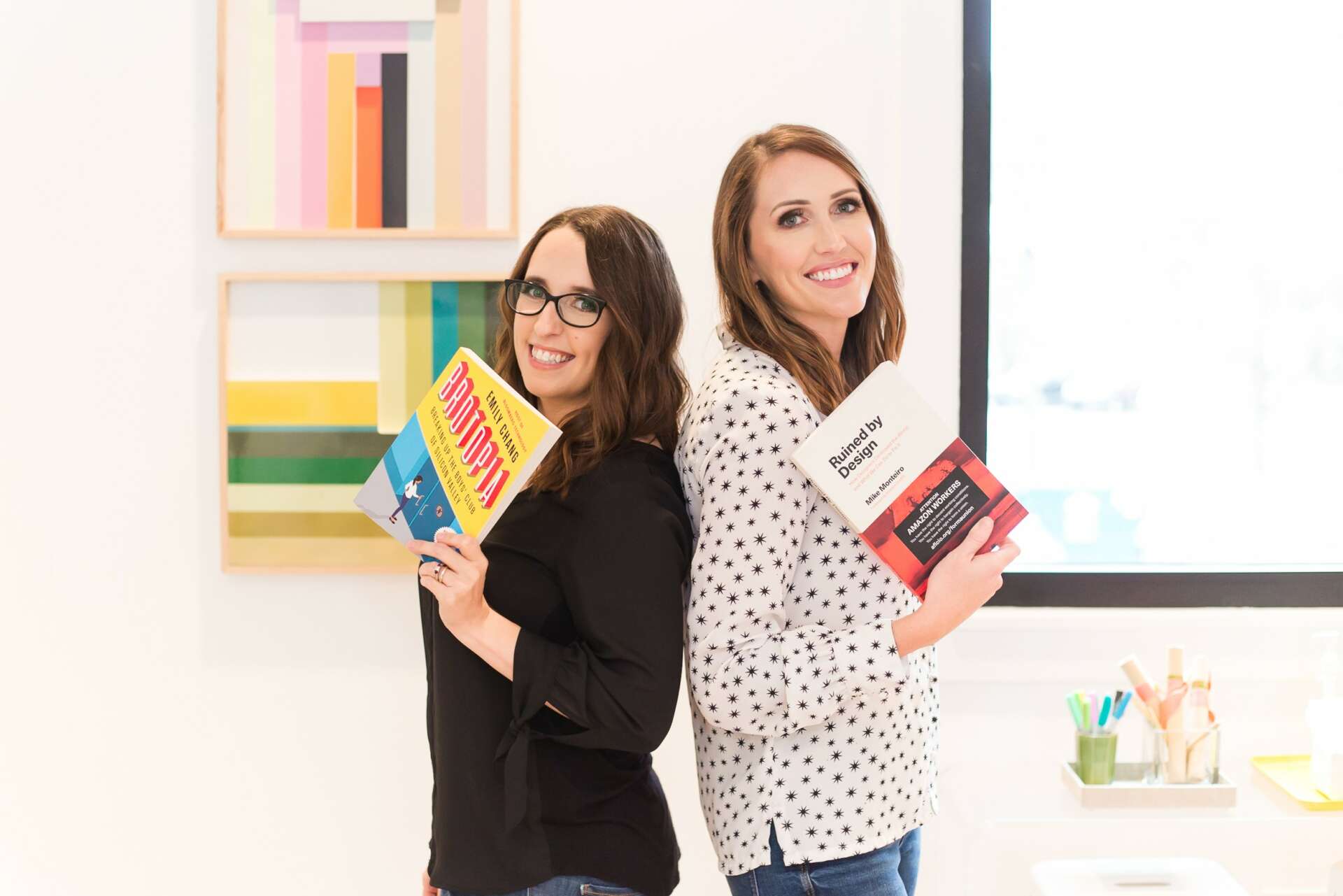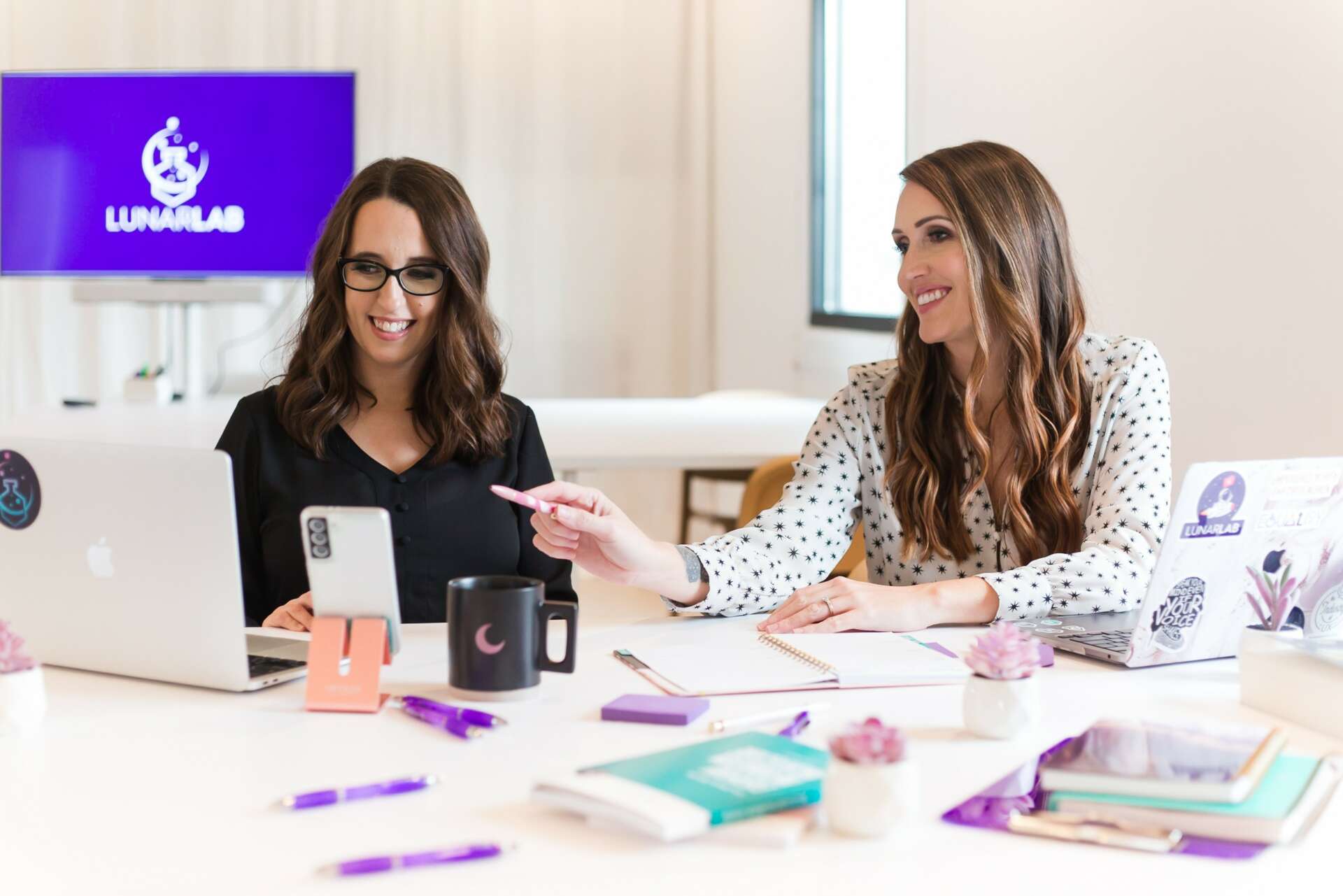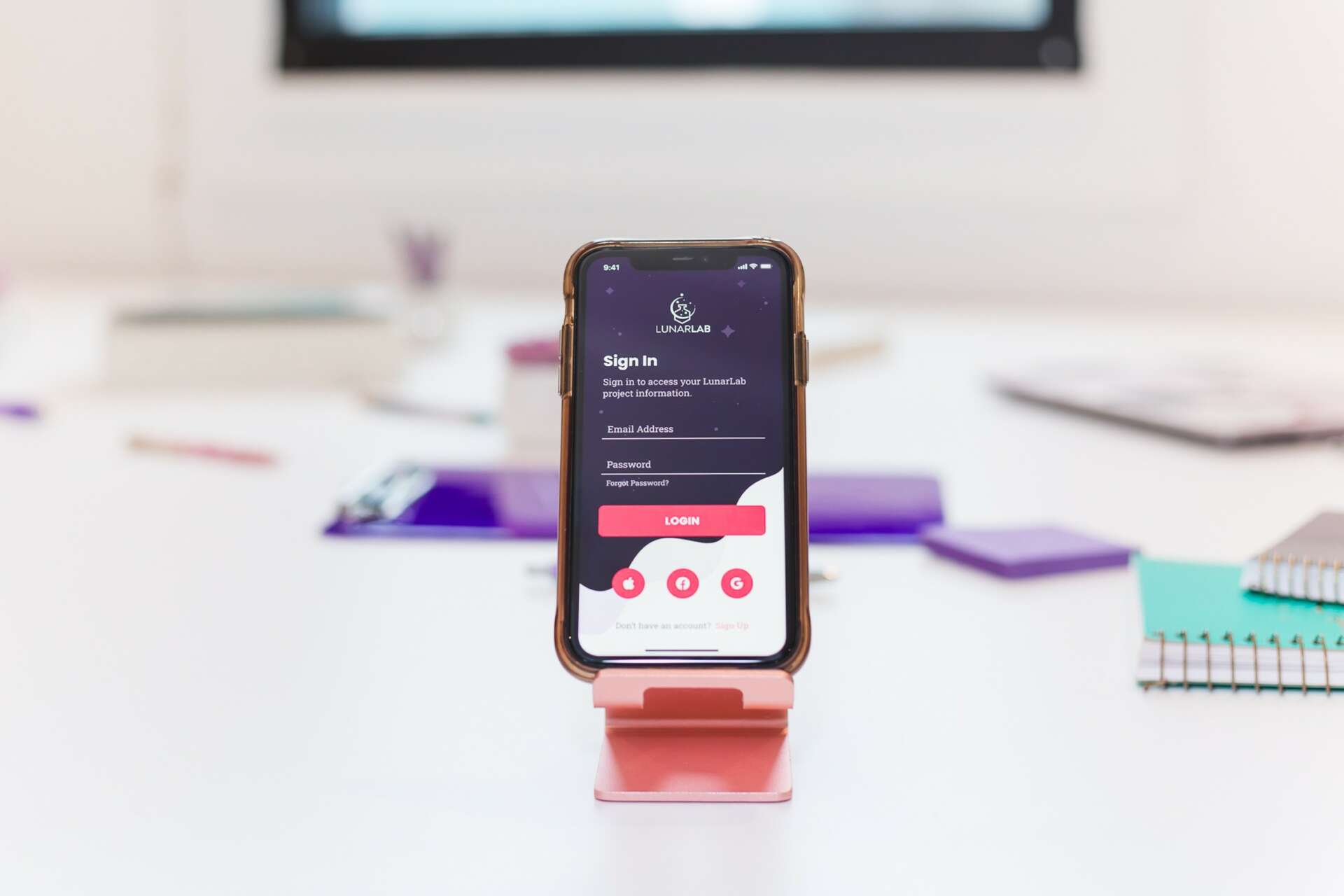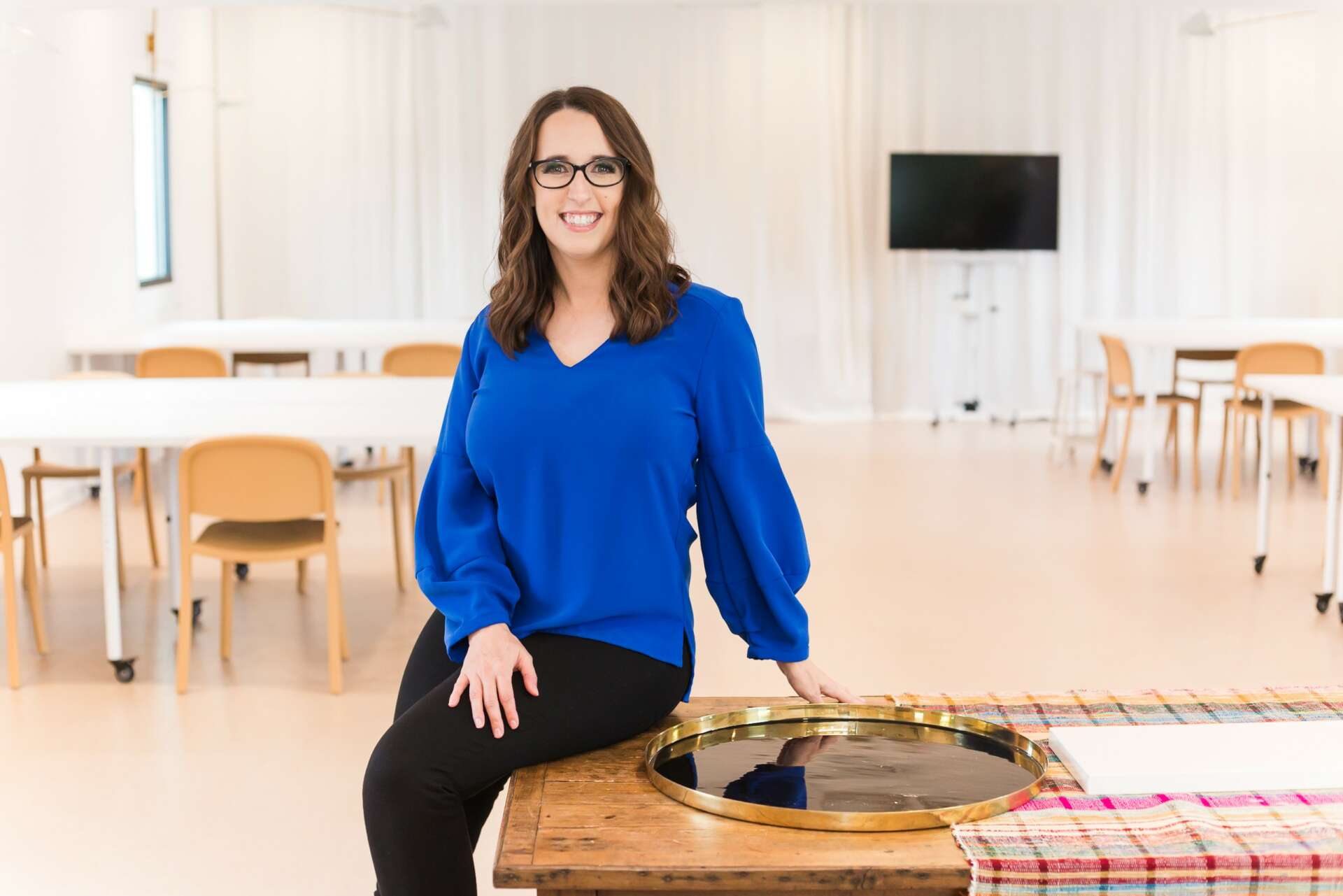We recently connected with Elizabeth Anderson and have shared our conversation below.
Elizabeth, looking forward to hearing all of your stories today. One of the things we most admire about small businesses is their ability to diverge from the corporate/industry standard. Is there something that you or your brand do that differs from the industry standard? We’d love to hear about it as well as any stories you might have that illustrate how or why this difference matters.
When my co-founder and I started our business, we had been working in tech for several years. A big issue with women in tech is that they leave tech mid-career. Both myself and my co-founder were getting to that point… we were tired of the toxic work environments, the sexism, and working on projects that didn’t feel meaningful. Instead of leaving, though, we thought to ourselves, “What if we stay and make it better?” Our company, LunarLab, was born out of that desire to stay and make tech better.
Since day 1 launching our business, we’ve worked hard to do something different. Sure, we’re a business and of course we care about making money… but the real way we measure our success is in helping others. We want to be a company that lifts others up and does the right thing. That applies to the businesses we serve (we help them make amazing software), but also to the people who use that software. We keep ethics and inclusivity at the forefront of every conversation to ensure that the software projects we work on have an ethically sound basis. We never want to be involved in creating software that can hurt people.
That ethos also applies to the people on our team. We have worked hard to create a work environment where people are paid and treated fairly. We feel that if we can’t afford to pay market rates or higher, then we can’t afford to hire. And we’re all about having a respectful, non-discriminatory, flexible, understanding, and loving work environment. My co-founder and I are both moms, so we want everyone to feel they have total flexibility at work so that their families can come first. And we always approach every situation with empathy. What we’re really hoping for is a radical shift in the way business is done, to create an environment that is truly human centered. We work with these people every day, and every day we make the choice to have a harmonious work environment. As a bonus, having a happy work life also means everyone is more productive. It’s a win/win!

Awesome – so before we get into the rest of our questions, can you briefly introduce yourself to our readers.
I never thought I would be a business owner! I was always into computers from the first time I encountered Oregon Trail in elementary school, but tech wasn’t a career path that I thought I could get into. My family had extremely limited means, and I’m a first generation college student. The only way I could go to college was with a music scholarship, so I ended up with a music degree. But during that time, I designed and built websites for businesses to help pay the bills. And with my music degree, I took a big interest in electronic music which requires a lot of coding. When I graduated, I got my first tech job at a support desk. Talk about a crash course into tech!! That job evolved over the years, and eventually it led to project management, leadership, then owning my own company.
Things have come full circle because now my company designs custom software for clients – whether that’s mobile apps, web apps, websites, or even software for IoT devices. I’ve learned a lot since those days of designing small business websites. Now, my company isn’t just about making it look nice… we make sure that the software meets business needs, is profitable, and is extremely easy to use. Software needs to support businesses’ goals to be successful, otherwise they’re leaving money on the table. We user our skills to help those businesses put more money in their pockets by focusing on what the users actually need. And we make it really pretty, too, but that’s the easiest part.

Alright – let’s talk about marketing or sales – do you have any fun stories about a risk you’ve taken or something else exciting on the sales and marketing side?
When we launched our business, my co-founder and I knew absolutely nothing about marketing or sales. We had no clue how to do those things, so I went to the library and checked out every book they had on those topics. I read them cover-to-cover over the next couple months and just tried to soak up as much as I could. We launched at the height of the pandemic and couldn’t leave our house for networking, so we relied heavily on social media marketing in the early stages.
One big risk we took was around building partnerships with other companies. Up until that point, the companies my co-founder and I worked at always considered other companies to be competitors. We wanted to try something different… to approach business with more of an abundance mindset than a scarcity mindset. So we proactively reached out to development companies and marketing agencies in our area to try to build connections with them. Our thinking was that we could help those businesses elevate their own service offerings. At first, some of those businesses were skeptical or considered us to be competitors. But after talking to them, we were able to build some great partnerships with other companies who recognized that we can help them offer better services to their clients, and in turn we can refer clients to them because we don’t offer marketing or development in-house. This has really paid off in a way that makes everyone involved more successful.

How did you put together the initial capital you needed to start your business?
We are fortunate that as a services business, we don’t require much funding to keep the lights on. At the end of the day, most of our expenses are pretty low – I think our initial investment was something like $400 each. We also approach money issues pretty conservatively, and only hire if we are absolutely sure we can afford it. Currently, we’re 100% bootstrapped, with no loans, grants, or outside investments whatsoever. We had full time jobs until the business could replace our salaries.
That said, every day we work with small businesses and startups who have much higher capital needs. Many of the founders we work with are from demographic groups who have been historically excluded from their industries or from being able to obtain capital. For example, women startup founders receive less than 2% of VC funding annually, and Black founders receive around 1% of VC funding. Now imagine how difficult it is to obtain capital as a Black woman. The disparities are frankly outrageous.
In the startup space, the focus is often on growth and investments rather than revenue, but that is really detrimental to the founders themselves. The best advice we can give founders is to do your best to bootstrap the business and make a profit from the earliest stages. Don’t wait to launch until everything is perfect; launch as early as you can and try to bring in revenue as quickly as possible. If that means consulting or using Google Forms to collect leads or doing things that are totally un-scalable or applying for a million grants… do whatever it takes to make money early on. My company’s first signed client was a company who needed project management – something that wasn’t even really on radar to offer as a service. We always joke and say that if times get tight enough, we would paint a client’s dining room to keep that cash coming in. But seriously, bringing in any revenue (even if it’s just a small amount) will help you be self-sufficient and have power over your own business. There is something very freeing about being able to run your business on your own terms without waiting for some rich guy to decide if they should invest or give you a loan.

Contact Info:
- Website: https://lunarlab.io/
- Instagram: https://www.instagram.com/lunarlab.io/
- Linkedin: https://www.linkedin.com/in/elizabeth-anderson-76b77840/
Image Credits
Audrey Seymour at Audrey Creative


